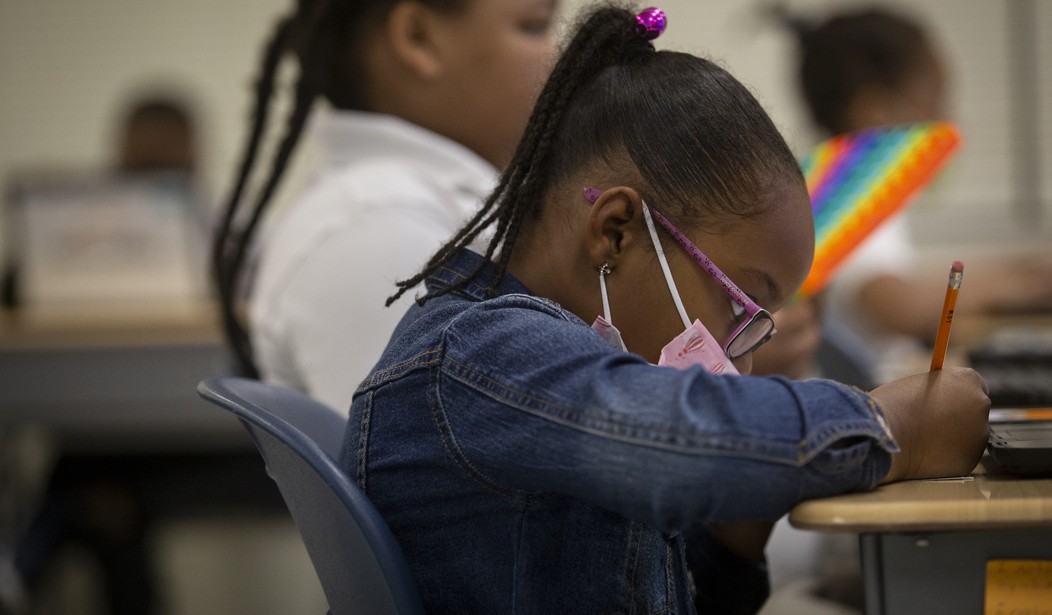The U.S. Government Accountability Office (GAO) released a report showing disparities in how Black girls are disciplined in government-run schools across the United States, potentially revealing one reason why a majority of Black Americans support school choice.
The study, titled “K-12 Education: Nationally, Black Girls Receive More Frequent and More Severe Discipline in School than Other Girls,” presents a stark reality -- Black Girls are not only disciplined more often than students of other races but they are also subjected to harsher punishments for similar behaviors.
The GAO report highlights the disproportionate rate at which Black girls face exclusionary discipline, such as suspensions and expulsions. While comprising about 15 percent of all female students in government-run schools, Black girls accounted for almost half of all suspensions and expulsions in the 2017-2018 school year.
The report notes that even when Black girls engaged in similar behaviors to White girls, they received harsher punishments, indicating that the frequency or severity of misbehavior did not influence the disciplinary outcomes. "Black girls had higher rates of exclusionary discipline compared to White girls for similar behaviors such as defiance, disrespect, and disruption," according to the study.
The disparity is not a geographic phenomenon. “In every state in the U.S., Black girls are disciplined at higher rates,” the researchers noted.
The GAO report looks at several different types of bias that could contribute to the disproportionate discipline of Black girls. One of these includes “adultification bias,” which occurs when a student is viewed as older and less innocent than their peers. This bias could lead to more severe punishment for behaviors that may be treated more leniently when exhibited by White girls.
"Adultification—a form of racial and gender bias in which adults view Black girls as older and more promiscuous than their same-age peers—leads to harsher punishments for Black girls," the report noted.
Another issue outlined in the report is “colorism,” which refers to bias against individuals with darker skin tones. This bias even exists in the Black community, with lighter-skinned Black people being viewed more favorably than those with darker complexions.
The discriminatory practices addressed in the report have a negative impact on Black girls’ feelings of safety and belonging in government-run schools. The GAO found that Black girls reported feeling less safe and connected in school environments than their peers. A higher percentage of Black girls reported fears of being physically attacked on school property.
The report suggests that this sense of disconnection and lack of safety can lead to negative outcomes when it comes to mental health and academic performance. It raises the likelihood of dropping out or entering into the juvenile justice system.
The authors make a few recommendations for addressing this problem. Restorative justice and implicit bias training are among the top suggestions.
However, school choice would likely be a better solution. Indeed, Black parents are overwhelmingly in support of school choice measures that empower them to exercise more control over how and where their children are educated, despite progressive claims that school choice is somehow racist.
A poll from December of last year further illustrates how black people view school choice.
According to a new poll from RealClear Opinion Research, which surveyed 1,000 registered voters in December 2023, candidates’ support of school choice makes voters of all political stripes more likely to support them.
This support exists across party lines. Overall, 76 percent of voters polled say they are more likely to vote for a candidate who supports school choice, including 77 percent of Democrats, 86 percent of Republicans, and 67 percent of Independents.
Notably, the demographic with the highest support is Black Americans, nearly 80 percent of whom say they are more likely to vote for someone who champions school choice.
These results confirm that school choice is here to stay and remains a political reality to which legislators who wish to be reelected must respond.
Just in case someone thinks these results are a fluke, according to an EdChoice/Morning Consult poll, 78 percent of black Americans favor educational savings accounts, 79 percent support school vouchers, and 74% support charter schools.
School choice offers better solutions for Black parents. It allows them to choose from private, charter, or magnet schools that may have less of a disparity in how their children are disciplined. More importantly, it would raise the quality of their education, better preparing them for adulthood, which is precisely why Democrats oppose it.
If the Democratic Party is going to present itself as the champion for Black people, they have to ensure that a large portion of the Black population remains in poverty, crime, and substandard education. Indeed, even the findings of this study won’t motivate them to push for change. After all, why solve a problem with racial disparities when you can simply grift off it and use the issue to garner more votes?













